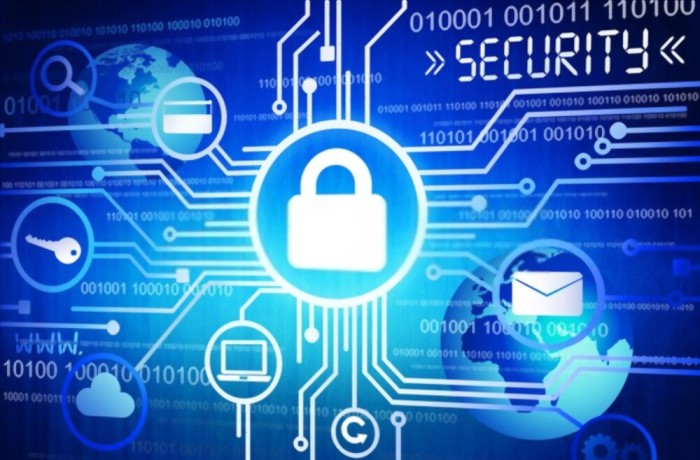
As we all know, safeguarding data is one of the most crucial responsibilities one possesses today, whether it is in physical form or digital. Nowadays, most of us rely on digital data from our official documents like Aadhaar, Passport, etc., to our professional data like Emails, reports, projects, and all other informative files, ensuring their security has become a major requirement.
Since most digital data exchange requires an internet connection, we cannot secure them by a lock and key, right! Hence, the tool we can use to serve the same purpose is “Encryption.” Encryption is the process of original coding data, also known as plain text, into gibberish, difficult to interpret by unauthorized bodies. This difficult-to-interpret form is known as ciphertext or ciphertext.
Unencrypted data is like an open book that anyone can read and intercept, even those with whom you do not want to share it, the least you can do to secure your network is log into 192.168.0.254. These unwanted readers or interceptors can include anyone from your internet service provider to a government agency or even cybercriminals like hackers. It’s not necessary that you need to be doing things against the law; someone might still want to steal your sensitive information or just track you for not so good intentions. It is reported that hackers attack every 39 seconds, on average, 2,244 times a day!
Thankfully, there are a number of ways by which you can prevent such attacks. Here are some simple ways to encrypt your internet connection:-
1. Use WPA2/WPA3 Encryption
Wi-Fi Protected Access 2 and Wi-Fi Protected Access 3, commonly known as WPA2 and WPA3, are network security encryption standards established for Wi-Fi networks. These are the upgraded versions of the older encryption protocol WPA. While many Wi-Fi routers may still use the original WPA, it is outdated and way less reliable in terms of protection.
WPA3 Personal is the latest and most secure protocol currently available for Wi-Fi devices. It works with all devices that support Wi-Fi 6 and some older devices. Also, do not forget to protect your router access with a strong, unpredictable password, yes get that freaky mind at work!
2. Ensure an HTTPS connection
While HTTP was the most common type of protocol websites used, HTTPS is the new standard nowadays. Hypertext Transfer Protocol Secure, or HTTPS, is an Internet connection protocol developed for the secure transfer of data between web browsers and websites. The older version HTTP protocol doesn’t provide any encryption and thus puts your sensitive data at risk.
If you use an HTTP website just to check out some memes, you’ll be fine. But, if you use it for making payments and typing in some personal information, you might be on the way to face a bad time since anyone can access that data. A browser extension named HTTPS Everywhere is recommended since it is compatible with most browsers like Chrome, Opera, Firefox, etc. and automatically redirects all HTTP links to HTTPS pages if they are available.
3. Only use End-to-End Encrypted messaging apps
If you want to send someone a message, do you just pick up your smartphone and use the default messenger or other messaging apps like Facebook Messenger and Whatsapp?
Most of you will pick the latter, yes they are quite convenient to use, but they aren’t really private. In other words, those messages can actually be leaked or exposed if those apps aren’t encrypted for security. Also, Facebook Messenger doesn’t use end-to-end encryption by default, meaning the company can keep a record of your conversations with your friend. Here are some really secure apps where you won’t be at the risk of being spied on:-
- Telegram
- LINE
- Signal
- Viber
- Whatsapp – While it offers end-to-end encryption and Facebook confirmed they couldn’t read your Whatsapp messages, it still has a PRISM issue that means Facebook is part of it, and that pretty much means that they share data with the NSA.
4. Use encrypted Email services
Gmail and Yahoo! are the most popular and convenient platforms, but they aren’t a good way to encrypt all the data you send through your internet connection. For example, Around three billion Yahoo! accounts were exposed to a data breach, and Google lets third parties scan your email.
But we have safer alternatives too, such as ProtonMail and Tutanota, as they offer you different types of protection like temporary email addresses and “burner” emails that get automatically deleted in a short period after being read. Given the high vulnerability of emails to attacks, using encrypted email services is highly recommended.
5. Use a Tor Browser
Tor is an acronym for “The Onion Router.” Since a browser is the first platform on which we rely for our online queries, it’s of prime importance that the browser must ensure security and online anonymity. Tor is a renowned browser best known for encrypting your online traffic quite well.
All the servers in the network are run by independent volunteers, and each volunteer gets only a piece of ciphered information you send or receive. However, Tor slows down your internet connection, and you’re unaware of the authenticity of who’s operating the particular server.
6. Use a VPN
Undoubtedly, the most effective way to encrypt your online traffic is to use a renowned virtual private network (VPN). A VPN’s job is to hide your IP address and send your online traffic through a much secure remote VPN server, making it impossible for spies to track down your online activities or intercept your delicate data.
It shields you from snoopers, hackers, intrusive advertisers, and all other possible cyber threats. However, you have to keep in mind to choose a well-trusted VPN provider as not all of them provide you a quality service.
